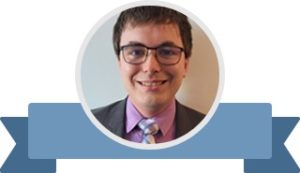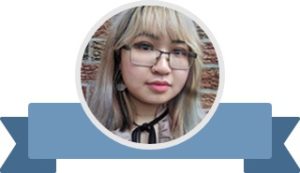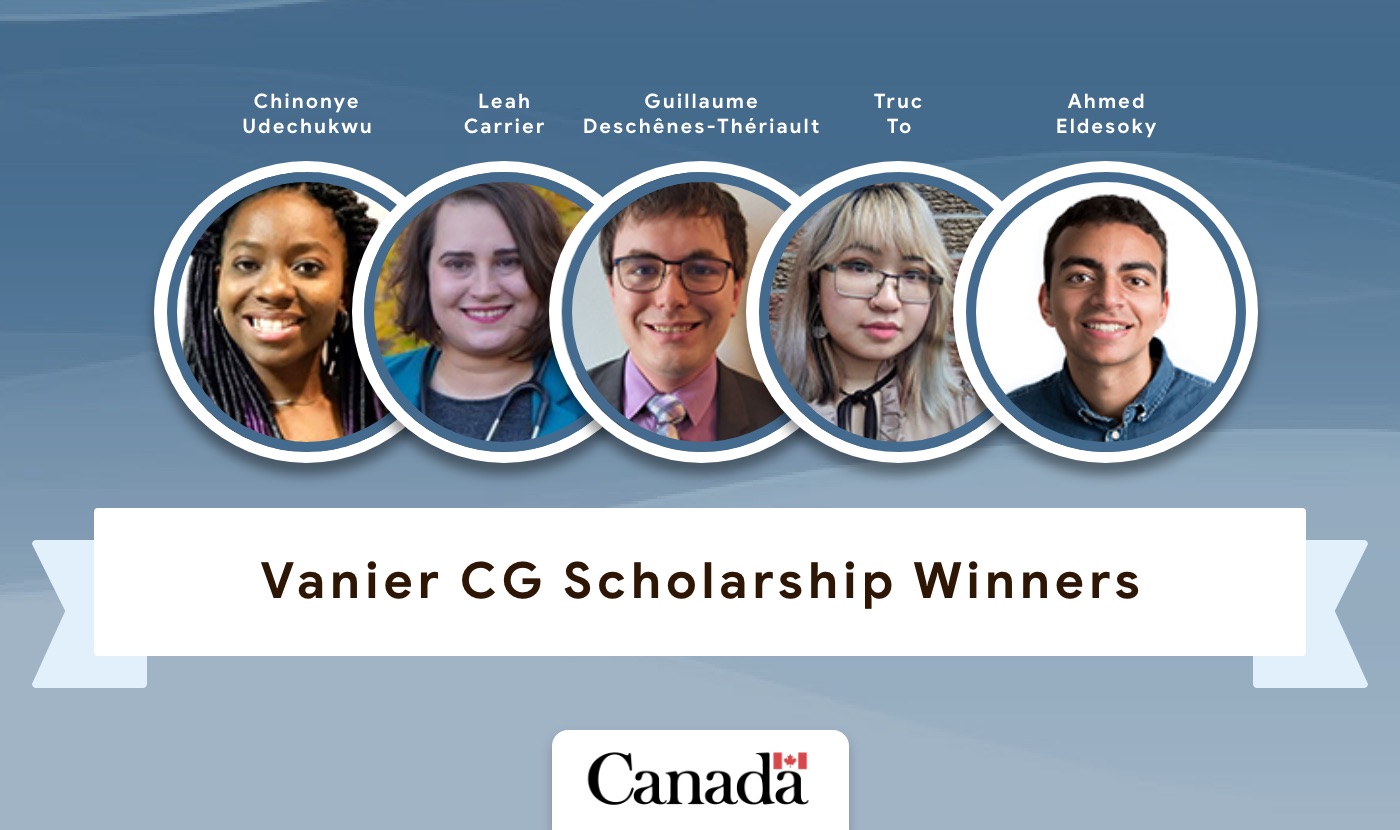The Vanier Canada Graduate Scholarships program was launched by the Government of Canada in 2008 and is valued at $50,000 per year. Additionally, a total of up to 500 scholarships are active at any time. Vanier CGS scholarship winners are distributed evenly between these federal granting agencies:
- CIHR – Canadian Institutes of Health Research
- NSERC – Natural Sciences and Engineering Research Council
- SSHRC – Social Sciences and Humanities Research Council
Furthermore, Vanier CGS scholarship winners demonstrate high scholarly achievement and leadership skills in graduate studies within these areas:
- Health;
- Natural Sciences and/or Engineering; and
- Social Sciences and Humanities.
We are thrilled to spotlight a few Vanier CGS 2020 scholarship winners!
Chinonye Udechukwu

“My research project explores the potential of early-life dietary interventions to reduce the risk of stress-related mental illnesses, such as depression and anxiety (the leading global causes of disability). Using a mouse model, I will specifically examine whether maternal consumption of a Mediterranean-style diet during pregnancy and lactation could prevent or mitigate the adverse effects of prenatal stress on (1) the development of offspring microbiota-gut-brain axis and (2) susceptibility of offspring to depression and anxiety-like behaviours in adulthood.”
Leah Carrier

“Although Indigenous children and youth experience mental health disparities, Indigenous communities have inherent strengths and resiliency that promote health and wellbeing. We know that cultural activities and community connection can act as a protective buffer for mental health among Indigenous peoples, but the majority of the research in this area has been done with adults. More research is needed to understand how Indigenous youth conceptualize mental wellness and the role culture plays in promoting mental wellness with this group. My proposed research uses a ‘Two-Eyed Seeing’ approach to address this gap and will explore the role of cultural connectedness and how culturally based interventions can be used to promote enhanced mental health for Indigenous children and youth.”
Guillaume Deschênes-Thériault

“As part of the sociology of public action, this study will empirically expose the way in which Francophone immigration in a minority environment was constituted as a public problem in Canada and the factors that explain the establishment of a collaborative governance framework at the federal level to develop and implement public policies for Francophone immigration. The thesis will deal specifically with a case study of the project of welcoming Francophone communities.”
Truc To

“Autophagy, an important degradative process, is used by cells as a mechanism to cope with stresses. Dysregulation of stress-specific autophagy has been shown to be involved in multiple human pathologies such as cancer, cardiomyopathy, neurodegeneration, and Crohn’s Disease. However, to date, no studies have attempted to compare the signaling requirements for autophagy induction upon distinct stresses such as nutrient starvation, DNA damage, or organelle dysfunction. My project will use the high throughput CRISPR (a genetic modification technique) analysis to identify and validate genes involved in the stress-specific autophagy regulation.”
Ahmed Eldesoky

“My research is dedicated to studying next-generation energy storage devices as an alternative to the conventional lithium-ion battery. State-of-the-art lithium-ion batteries struggle to meet the growing demands of governments and industry due to their relatively low energy density – the amount of energy stored per unit volume. Lithium metal batteries can meet the demand for high energy density storage devices but are very challenging to implement due to the hazards and limitations currently associated with them. Our work in this field will continue making significant contributions to understanding and addressing the fundamental challenges in lithium metal technology to make it a reality.”
Furthermore, to see how you can win the Vanier Canada Graduate Scholarships, read Tips To Win The Scholarship.

